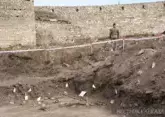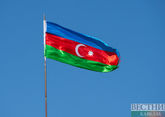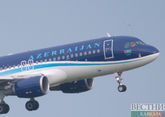The armed forces of Azerbaijan and Turkey conducted two late-spring joint exercises, around Baku (on May 1–3) and in the Azerbaijani exclave of Nakhchivan (June 7–11). The goal of these drills was to increase the level of coordination and interoperability between the two militaries, to fulfill joint combat operations, and instruct Azerbaijani servicemen on how to use Turkish weapons.
The Jamestown Foundation in the article Azerbaijan’s Military Exercises Send Defiant Message to Armenia writes that Azerbaijan’s Defense Minister Zakir Hasanov stressed that his country’s expanding military cooperation with Turkey “is the main factor ensuring stability in the region” and the “[two] armed forces are ready” to accomplish any task.
Meanwhile, Turkish Defense Minister Hulusi Akar noted, “This exercise is an example of what the two states can do when they are one nation [and] one army”. The number of joint Azerbaijani-Turkish exercises has substantially increased compared to previous years, with 13 total envisioned for 2019. In 2018, the two countries carried out just seven joint drills.
Over the past several months, Azerbaijani service members (including soldiers from Nakhchivan’s Combined-Arms Army) have also actively participated in military drills on Turkish territory. In Turkey, the Azerbaijani military rehearsed difficult combat tasks in complex geographies. Turkey’s anti-terrorist combat experience in the Middle East strongly contributed to the content of these exercises (Mod.gov.az, February 6, 12, 18, May 15, 16, 23, 24). And Minister Hasanov recently declared that Azerbaijan and Pakistani special forces will soon hold joint exercises, as well.
At the same time, Azerbaijan has been stepping up unilateral military maneuvers. Between March and June of this year, Azerbaijan’s armed forces performed several large-scale and tactical-special exercises. In these drills, Azerbaijani soldiers trained to rebuff an enemy’s attacks by utilizing massive missile counterstrikes, artillery fires, air-assault and air-defense systems, tank charges, as well as drones and satellite technologies (Mod.gov.az, March 8, April 1, 8, 11, 18, 25, 29, May 20, June 19, 21).
The Azerbaijani military is learning to fight in new ways, testing, according to Defense Minister Hasanov, “new weapons,” “tactical methods” and “combat readiness”. Over the last three years, the Armed Forces of Azerbaijan, taking into consideration Armenia’s changing arsenal, have been mapping out the most optimal and effective methods to carry out large-scale counteroffensive operations in both day and nighttime conditions. Moreover, Azerbaijan’s military units have practiced taking advantageous positions in the enemy’s operational and strategic rear, including in difficult mountainous terrain as well as harsh climatic and electronic-warfare environments. The Armed Forces have, thus, become increasingly mobile, quick and flexible enough to shift to a full-scale counteroffensive posture within hours or a few days thanks to more regular training and better engineering/construction works. Exercises are held in maximum compliance with real battlefield conditions and aimed at repelling possible armed incursions by Armenian forces. And the military has built mock enemy defensive lines at its training grounds in order to allow Azerbaijani units to practice overcoming the opposing side’s fortified trenches.
On the heels of last month’s Azerbaijani-Turkish exercises in Nakhchivan, the defense ministers of Azerbaijan, Georgia and Turkey met in Gabala (Azerbaijan) to discuss “the military-political situation in the region.” During the talks, Georgian Defense Minister Levan Isoria voiced the possibility of Georgia’s future involvement in Turkey and Azerbaijan’s joint military exercises. Specifically, beyond the regular trilateral exercises the three have held to date that have focused on the protection of critical infrastructure, Georgia is now also looking to join Azerbaijani-Turkish tactical military exercises. The Azerbaijani media claimed that Tbilisi may, therefore, be reconsidering its relative neutrality toward Armenia.
Following the Azerbaijani Armed Forces’ several weeks of military exercises on three different “fronts” (in mainland Azerbaijan, Nakhchivan and Turkey), the Armenian military launched its own “large-scale exercises” in Azerbaijan’s occupied territories. In fact, the Nakhchivan frontier presents a serious operational dilemma for Armenia, forcing it, in case of open hostilities, to face potential Azerbaijani resistance along a second front.
The large-scale exercises coincided with new ceasefire violations along the Azerbaijani-Armenian frontline as well as bellicose rhetoric coming out of Yerevan. At the end of May, Armenian snipers shot two Azerbaijani service members; the snipers were later awarded by the Armenian Ministry of Defense. Azerbaijan’s Ministry of Foreign Affairs called this a “bloody act perpetrated intentionally” by the Armenian side to spoil bilateral conflict negotiations. Shortly afterward, an Armenian anti-aircraft missile system targeted (but failed to hit) an Azerbaijani training aircraft flying above the frontline.
According to Armenia’s Defense Minister David Tonoyan, Yerevan has deployed special forces along the entire frontline. This echoes Tonoyan’s earlier statement that Armenia may resort to a “new war–new territories” formula, implying a shift from a “defensive strategy” to “active deterrence” that would include special reconnaissance operations inside Azerbaijani territories. After Tonoyan made those remarks—which he delivered on the third anniversary of the April 2016 “Four Days’ War”—the Armenian Armed Forces held bilateral exercises with units from Russia’s 102nd Military Base under the Armenia-Russia Joint Command to test readiness for joint combat missions.
Considering the fact that the Armenian military resumed regular fires targeting Azerbaijani frontline positions, and given the possibility of nighttime sabotage attacks by Armenian forces (in order to distract Armenian society from the internal political confrontations in the country), Azerbaijan’s defense ministry instructed commanders to suppress the enemy provocations by taking adequate measures. These developments have already pushed Azerbaijan to amend its 2019 State Budget, increasing defense expenditures by 4.9 percent. The current tense situation along the frontline resembles the pre-April 2016 period. And Baku is concerned that the current Armenian government appears more willing than its predecessors to disrupt conflict-resolution negotiations. The prospects of open warfare returning to the region are growing.










